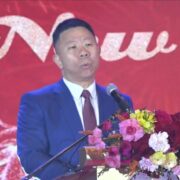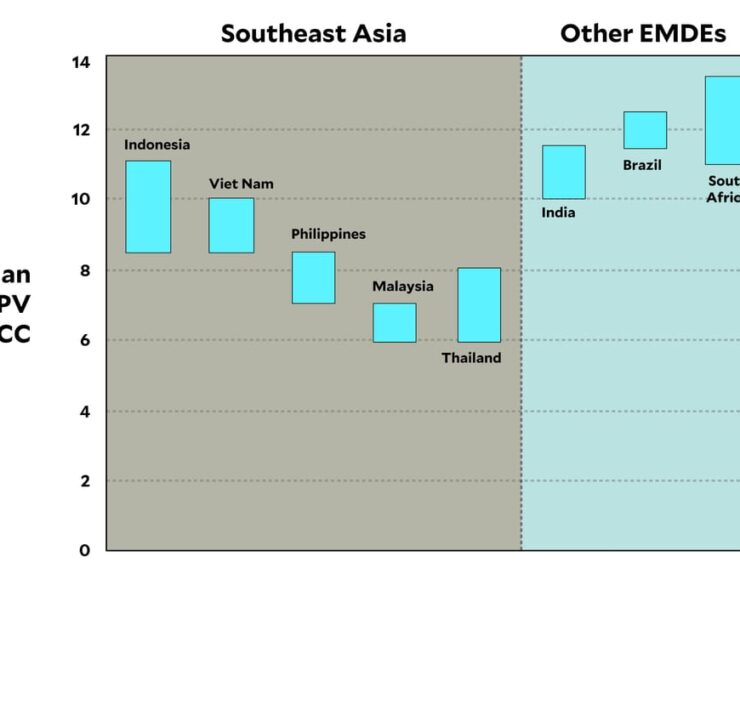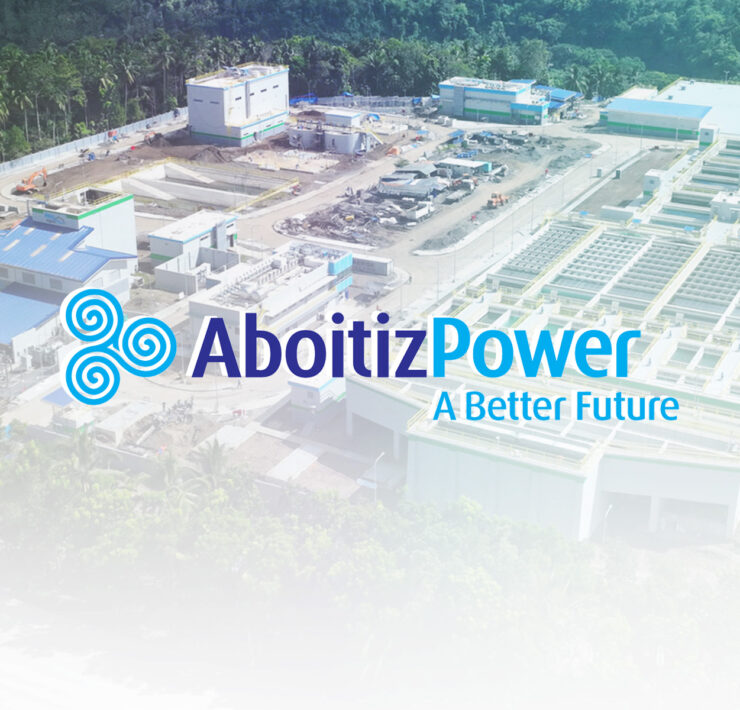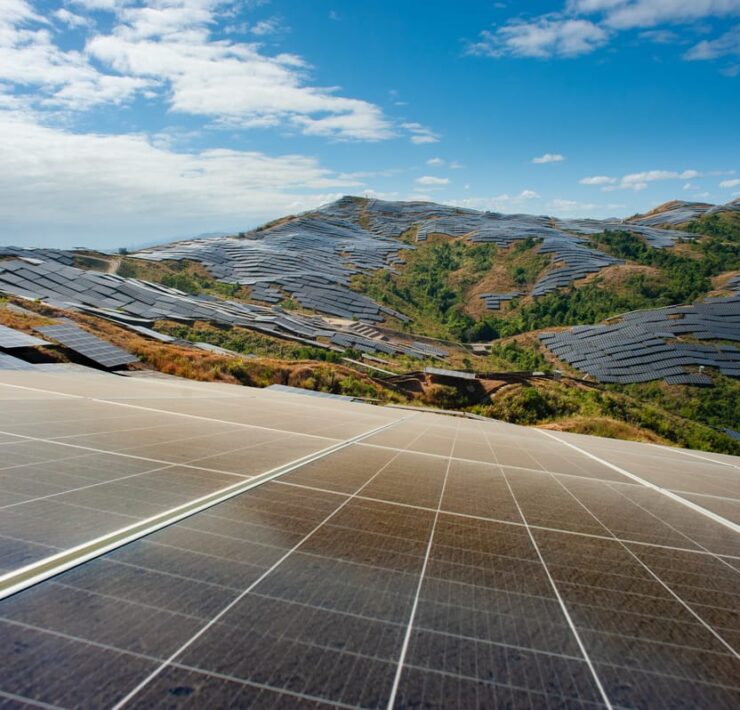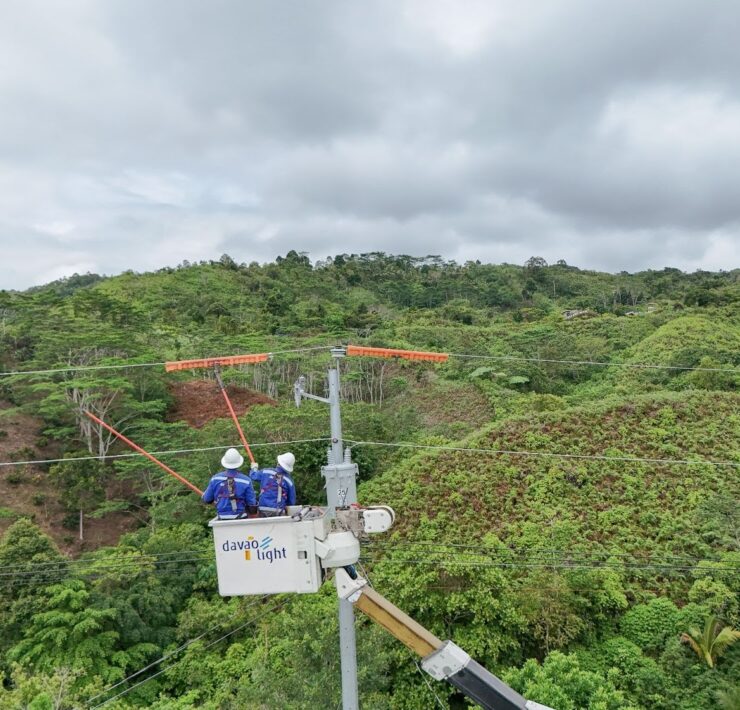Small stitches, huge impact
- Aboitiz Renewables helps preserve authentic, handcrafted indigenous products in Bukidnon

The responsibility of preserving culture moves the hearts and hands of indigenous artisans from the Higaonon tribe in rural Impasugong, Bukidnon. For them, building a better future means passing on the work of traditional craftsmanship to a new generation willing to take up the mantle.
“Tribal attire is important because people respect it. Our parents took care of it then. Whatever our parents did before, that’s what we took care of now,” said Cherlie Tundanay, 63, one of the few left skilled in sewing traditional tribal attire.
“It’s important to me to teach whatever I know about sewing. This is not only for my grandchildren, but for young people who want to learn sewing,” she explained. “I haven’t taught them yet because we lack sewing materials.”
For over a hundred years, the culture of weaving colorful clothes and making bead necklaces was cultivated, with the designs and the items themselves becoming powerful symbols of tribe identity,
spirituality, and respect for ancestry. “Red means bravery, white symbolizes peace, [and] yellow signifies a golden heart and kindness,” the master seamstress detailed.
But nowadays, imitators and mass producers threaten to devalue this long-held tradition and even take away a source of income from the women of the indigenous group.

Seeking to empower traditional craftsmanship and establish sustainable income among IP women in Impasugong, Bukidnon, Project Tahi ‘Ta! was created — a culture-based sewing livelihood training program for the community by Aboitiz Renewables, together with the Aboitiz Foundation.
The project sponsored training sessions in sewing technology, machine setup, measurements, pattern drafting, and the sewing process, courtesy of the Technical Education and Skills Development Authority or TESDA. The venue allowed beneficiaries to learn and experiment with more draft patterns, techniques, and products. Tahi ‘Ta! also provided them with the sewing machines, full sewing kits, cloth, and other materials.
“Project Tahi ‘Ta! blends cultural preservation with livelihood support,” explained Aboitiz Renewables First Vice President and General Manager for Hydro Operations Noreen Vicencio. “Apart from crafting practical items, women aged 19 to 60+ are taught to continue making traditional garments and accessories, allowing them to pass their knowledge to the next generation.”
“We see culture and livelihood working hand in hand. When women gain confidence in their skills, they bring both income and pride to their families,” she added.

Aboitiz Renewables and the Aboitiz Foundation launched Project Tahi ‘Ta! In Barangay Guihean, Impasugong, Bukidnon in 2024. In the same year, 19 women from the barangay completed their training, further developing competencies in making garments, accessories, and traditional attire. By also taking on small sewing jobs, which include making and repairing curtains, school uniforms, and household linens, these local women brought in additional income to their households.
“I thank AboitizPower for giving us a livelihood. We were provided with sewing machines, cloth, and the opportunity to train,” Cherlie said. “We are proud of our work. Not everyone knows how to sew tribal attire — the clothes of Baes and Datus!”
Project Tahi ‘Ta! won the “Outstanding CSR Project for Arts and Culture” at the CSR Guilds Awards 2025. Organized by the League of Corporate Foundations, the CSR Guilds Awards honor programs that create lasting, meaningful impact in communities across the Philippines.

Higaonon tribe rises again with KaBAMBOOhayan
The Higaonon tribe’s strength, resilience, and ingenuity showed through in 2021 after the mountainous Barangay Santiago in Manolo Fortich, Bukidnon was hit by heavy rainfall and a landslide, which buried the roads that brought crops like corn and abaca to the market, severely limiting livelihoods.
While Aboitiz Renewables planted bamboo in the area as a precaution to potential landslides in the future, the tribe also saw an opportunity to make use of the tall, thick, and woody grass to sell as raw materials or even create crafts such as guitars, chess sets, and chairs.
To scale, with the support of Aboitiz Renewables and the Aboitiz Foundation, members of the Higaonon tribe were trained by TESDA in bamboo propagation, processing, and treatment while waiting for more bamboo plants to grow. Eventually, they were given a machine of their own for bamboo processing.
“Our training was free, provided by Aboitiz and TESDA,” said Noemie Buclasan, a mother of three who took the opportunity to learn after damage to her modest plot of land. “Bamboo really helps the environment and our people because it can be a livelihood.”
The bayanihan paved the way for the tribe to source new income, netting them about P26,000 on a weekly basis through their cooperative: the Santiago Diversified Farmers Association.

“In our association, we have a rotation schedule. So our work is steady, [unlike] before when I’d ask where I could find labor and on whose farm. Now we know our schedule for the week, and we know we’ll have income,” Noemi explained in the vernacular. “We’re more at ease now. When the kids ask for slippers, I can say, ‘okay, I have my pay now, let’s buy it.’”
“We’re truly very thankful to [Aboitiz Renewables]. Aside from [KaBAMBOOhayan], when Aboitiz came to our barangay — even though the roads were rough before — our men got jobs and could work daily while the hydro was being built, which helped us a lot,” she further recalled. “After Aboitiz finished the project, their help to our community didn’t stop.”
Aboitiz Renewables, through its wholly-owned subsidiary Hedcor Bukidnon, Inc., operates the Manolo Fortich 1 and 2 hydro facilities in Bukidnon, which harness the power of the Tanaon, Amusig, and Guihean rivers. Aboitiz Renewables is the renewable energy arm of Aboitiz Power Corporation.













